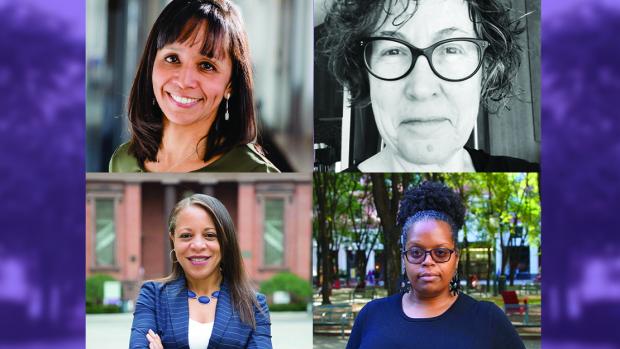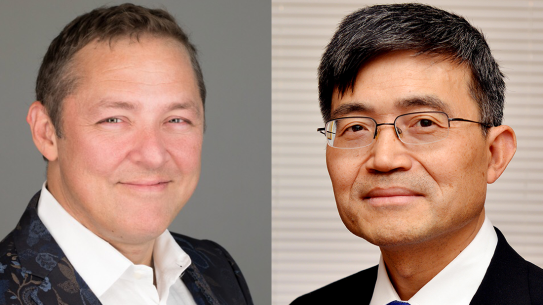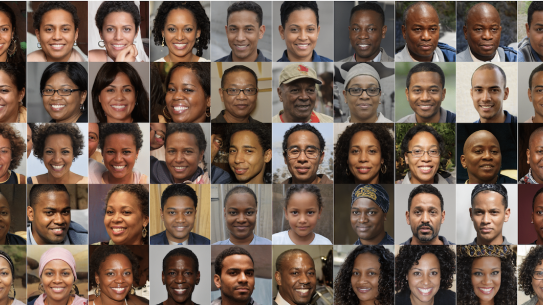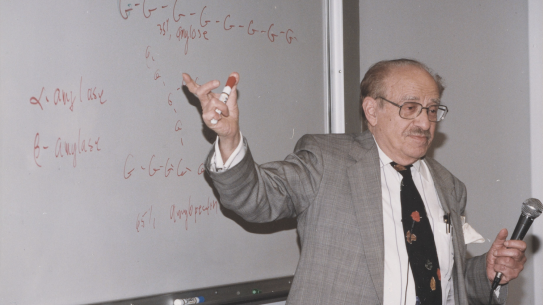Chief Inclusivity Officers have a vital mission
That’s why NYU Tandon has appointed an entire team

Clockwise from upper left: Rose Ampuero, Jean Gallagher, Melinda Parham and Nicole Johnson
A report from the Association of American Colleges and Universities pointed out that expanding access to quality education is “key to closing America’s deepening divides, strengthening the middle class, and ensuring our nation’s vitality.” The report acknowledged, however, that entrenched practices can reinforce inequities and lead to less-than-optimal outcomes for underrepresented students. “Higher education can no longer leave this issue unattended,” the organization argued. “It is our responsibility to the students we serve as well as to our democracy and the nation’s economy. It is time for higher education to step up and lead for equity.”
Many schools, in answering that call to arms, have appointed chief diversity or inclusivity officers, who have a complex, but absolutely vital, mission. At NYU Tandon, that multifaceted undertaking is being overseen by not one chief inclusivity officer but an entire team, who collectively head the school’s newly launched Office of Inclusive Excellence.
Their work involves conducting clear-eyed, data-based assessments of past efforts to increase inclusion, diversity, belonging, and equity (IDBE); elevating increased IDBE as an explicit institutional goal; encouraging frank dialogues about the climate for underserved students, with the goal of effecting meaningful shifts in language and behaviors; and ensuring that underserved students have all the resources they need for success.
Meet the CIOs
Rosemary Ampuero
is currently Tandon’s Interim Associate Dean for Student Affairs, and during her more than six years at the school, she has worked closely with students from a diverse range of races, ethnicities, socioeconomic backgrounds, religions, gender identities and expressions, sexual orientations, and political views. She is grounded in the philosophy that student involvement in a supportive environment not only provides leadership development but also enhances the academic experience.
Jean Gallagher
is currently the Director of Faculty Development and co-chair of the Inclusion@Tandon Committee. Trained as a scholar of modernist literature and feminist theory, she has been a professor of English here since 1994. In addition to teaching a range of writing and literature courses (and publishing three books of poetry along the way), she has developed and directed the Writing Consultants program for Tandon’s first-year engineers.
Nicole Johnson
is currently the Assistant Dean for Opportunity Programs and the Director of the TRIO Scholars Program at Tandon. She leads many of Tandon’s capacity-building efforts related to IDBE and serves as the co-chair of the Inclusion@Tandon Committee; the chair of the Women @ Tandon and the Black and Latino Men @ Tandon Committees, both of which she helped establish; and an Office of Global Inclusion Officer for the university. Her efforts over the course of her more than two decades here have resulted in more than $2 million in funding for initiatives targeting underrepresented groups. She holds that IDBE should be viewed from an asset-based perspective, and higher education should provide its stakeholders with ongoing opportunities to build cultural proficiency.
Melinda Parham
is currently the Assistant Dean for First-year Students and Academic Initiatives. Her tenure at the School of Engineering spans almost two decades, and is marked by her steadfast commitment to engaging students across various social identities and locations, in an inclusive and equitable manner. Evidence of her commitment to social justice work can be found in her research interests, which focus on how Black males are scripted in academic spaces and the impact this dynamic has on their educational experiences and outcomes.
Four heads are better than one
Each brings multiple talents to their new roles as CIOs: from Ampuero’s broad professional affiliations and knowledge of large-scale program development to Gallagher’s experiences in faculty development and teaching, and from Johnson’s longtime leadership of the school’s diversity initiatives to Parham’s understanding of IDBE-related literature and skill in navigating the ambiguities and turbulence associated with creating new initiatives and shaping new roles.
“Given our collective experience in advancing inclusion, diversity, belonging and equity, we believed that a shared governance model would best position the school to further build IDBE capacity, accomplish the goals of our IDBE strategic plan, and ensure systemic change around these priorities,” they say. “We intend to honor the work already done within this space and signal to stakeholders Tandon’s strong investment in IDBE efforts.”
The group members, themselves, hail from varying backgrounds and view their work through varying lenses.
“Being an African American woman raised by parents born and raised in the southern region of this country, I can’t remember a time when I wasn't interested, directly impacted or aware of issues related to diversity, equity and inclusion,” Johnson explains. “I can say that my own life experiences have always made me want to contribute towards making the world better than the one I inherited, for my child, children who look like him, and all children.”
Ampuero had something of an epiphany after she arrived at Tandon. “Prior to that, I was at Marymount Manhattan for almost a decade. During that time, I served as the Diversity Officer and implemented a number of initiatives that addressed issues of diversity, equity and inclusion,” she recalls. “I hosted monthly conversations where students were able to speak about their experiences. It was eye-opening, especially as I started to hear the same concerns and issues over and over. Those same issues were brought up during conversations at Tandon, and I realized that these were deep-rooted, systemic, and not necessarily specific to a school or a department within a school.”
Gallagher first came to this work through chairing Inclusion@Tandon with Johnson and serving on the committee along with the others. “It’s been a life-changing experience,” she says. “I’ve learned so much from them and their brilliant, passionate commitment to addressing inequities and fostering an inclusive, diverse community here, and I’m grateful for the opportunity to work with them going forward.”
A team with a firm end goal
The Office of Inclusive Excellence will:
- Provide thought leadership around Tandon’s IDBE efforts, establishing a formal space for the ongoing articulation of short-term and long-term institutional goals
- Increase Tandon’s strategic diversity capacity and create an infrastructure to support the sustained presence of the IDBE agenda
- Create a centralized unit charged with that agenda
- Locate the pursuit of IDBE funding opportunities within a centralized administrative unit
- Establish a foundation for high-impact and high-profile goals
Last spring, the Inclusion@Tandon Committee drafted an IDBE Strategic Plan, which offers a concrete roadmap for moving forward. With myriad steps—including recruiting, retaining, and supporting more under-represented minority students to creating an entirely new IDBE infrastructure—it’s an ambitious, long-term proposition, but as the four-point out, it’s all eminently doable if everyone commits to pitching in. (The Committee now consists of nine working groups implementing action items from the plan, and all staff members, faculty, and students are encouraged to find one that interests them and join; if you’d like to learn more, please contact tandon-inclusion@nyu.edu).
The CIOs will also function as the executive arm of the Inclusion@Tandon Committee and will be responsible for Strategic Leadership, Training and Instruction, Assessment, and Dispute Resolution as it relates to IDBE initiatives at Tandon.
“We’re hoping to help foster awareness of and commitment to diversity, equity, and inclusion at pretty much every level of activity at the school, so that it’s not something ‘extra’ but rather an integral part of how we educate, how we approach our research and scholarship, how we hire and support faculty and staff, how we admit and support students at all levels, and how we work together to create this community,” they say. “When students, staff, and faculty feel like they are part of the community and that their voices matter, regardless of what position they hold or what class year they are in, we will have transformed the culture of the school.”
Parham’s lens
As a Black person, I understand that my humanity is something that remains a question for some, as opposed to a given. As a woman, well, the struggle is always centered around my identity, namely, my ability to define myself beyond what society imagines for me, beyond the roles I may occupy in my personal life. My existence, at the intersection of these two identities, requires me to have a basic understanding of the importance of, and benefits yielded from, IDBE work. Living my truth, taking up space because I can, and especially when others seek to constrain my possibilities, is imperative as a Black woman. Period, full stop. Being a change agent, living in a world where all marginalized groups have achieved an equitable existence, is a critical part of that truth. Self-actualization is the forever endgame, for all members of society, is it not?
Now, thinking about my participation in this work, with an eye towards contributing to scholarship and bringing about systemic changes, I would have to point to two things. First, I attended an elementary school where I was able to witness the incomparable leadership of educators who looked like me and affirmed the fullness of my being, in a culturally grounded manner. Second, my decision to become a diversity peer educator, during my undergraduate career, signaled my growing interest in changing inequitable social structures and systems. Taken together, these experiences, along with many others, have laid the foundation for my educational pursuits at the graduate level and the professional roles I have occupied, here at Tandon and beyond.
~ Melinda Parham





